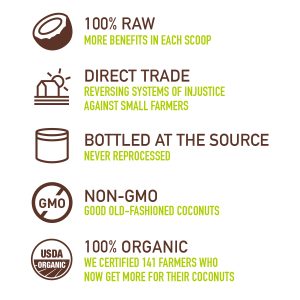In a world increasingly aware of environmental challenges, adopting a green lifestyle goes beyond just the food on our plates. It extends into every facet of our daily practices, from the products we use to the energy we consume. This holistic approach to sustainability is a conscious commitment to minimizing our ecological footprint and contributing to a healthier planet. In this article, we explore how adopting a green lifestyle transcends food choices, influencing various aspects of our daily lives for the betterment of both the environment and our well-being.
1. Eco-Friendly Transportation:
One of the most impactful ways to embrace a green lifestyle is by choosing eco-friendly transportation options. Opting for public transport, carpooling, cycling, or walking reduces reliance on fossil fuels, decreases air pollution, and minimizes carbon emissions. For those with longer commutes, electric or hybrid vehicles present a greener alternative, contributing to a more sustainable mode of transportation.
2. Mindful Energy Consumption:
Green living involves being conscious of energy usage in our homes. Switching to energy-efficient appliances, turning off lights when not needed, and utilizing programmable thermostats are simple yet effective ways to reduce energy consumption. Embracing renewable energy sources, such as solar panels, further supports a sustainable lifestyle by decreasing reliance on non-renewable energy.
3. Sustainable Water Practices:
Conserving water is a fundamental aspect of a green lifestyle. Simple practices like fixing leaks, using low-flow fixtures, and collecting rainwater for gardening contribute to water conservation. Additionally, being mindful of water usage in daily activities, such as washing dishes or taking showers, further promotes sustainable water practices.
4. Eco-Friendly Household Products:
The products we use in our homes have a significant impact on the environment. Choosing eco-friendly, biodegradable, and non-toxic household cleaners, detergents, and personal care products minimizes the release of harmful chemicals into the environment. Additionally, opting for products with minimal packaging or recyclable materials supports a more sustainable approach to consumption.
5. Waste Reduction and Recycling:
Reducing waste and promoting recycling are integral components of a green lifestyle. Mindful shopping, avoiding single-use plastics, and opting for products with minimal packaging help minimize waste generation. Setting up a recycling system at home and participating in community recycling programs further contribute to waste reduction and resource conservation.
6. Sustainable Fashion Choices:
The fashion industry has a considerable environmental impact, from resource-intensive production processes to textile waste. Adopting a green lifestyle involves making sustainable fashion choices, such as buying second-hand clothing, supporting eco-friendly brands, and choosing quality pieces that stand the test of time. Additionally, clothing swaps and upcycling old garments promote a more sustainable approach to personal style.
7. Green Gardening Practices:
For those with a green thumb, sustainable gardening practices align with a green lifestyle. Using organic fertilizers, composting kitchen waste, and choosing native plants promote biodiversity and reduce the reliance on synthetic chemicals. Sustainable gardening not only contributes to a healthier environment but also provides a source of fresh, locally grown produce.
8. Mindful Consumption Habits:
A key aspect of a green lifestyle is adopting mindful consumption habits. This involves questioning the necessity of purchases, avoiding impulse buying, and opting for quality over quantity. By embracing a minimalist mindset, individuals contribute to the reduction of overconsumption and the environmental impact associated with the production and disposal of goods.
9. Green Technology Integration:
Incorporating green technologies into daily life enhances a sustainable lifestyle. This includes using energy-efficient gadgets, smart home systems that optimize energy consumption, and eco-friendly innovations that align with green living principles. Staying informed about advancements in green technology empowers individuals to make conscious choices in their tech-related practices.
10. Connection with Nature:
A green lifestyle is rooted in a connection with nature. Spending time outdoors, practicing activities such as hiking, camping, or gardening, fosters a deeper appreciation for the environment. This connection serves as a source of inspiration and motivation to adopt practices that protect and preserve the natural world.
11. Mindful Travel Choices:
Travel choices play a significant role in a green lifestyle. Opting for eco-friendly accommodations, supporting local businesses, and minimizing air travel where possible contribute to sustainable tourism. Additionally, offsetting carbon emissions from travel and exploring nearby destinations reduce the environmental impact associated with long-haul journeys.
12. Promotion of Environmental Education:
A green lifestyle involves not only personal practices but also a commitment to spreading awareness and education about environmental issues. Supporting and participating in environmental initiatives, sharing information about sustainable practices, and engaging in community projects contribute to building a collective consciousness towards a greener future.
13. Participation in Conservation Efforts:
Taking an active role in conservation efforts, such as tree planting, beach clean-ups, or wildlife habitat restoration, is a tangible way to contribute to a green lifestyle. Volunteering with environmental organizations and participating in local conservation projects fosters a sense of community and shared responsibility for the planet.
14. Sustainable Event Planning:
For those organizing events, adopting sustainable event planning practices aligns with a green lifestyle. This includes choosing eco-friendly venues, minimizing waste through proper disposal and recycling, and providing sustainable catering options. By integrating green practices into events, individuals extend the principles of sustainability to communal and social gatherings.
15. Advocacy for Environmental Policies:
Beyond personal actions, advocating for and supporting environmental policies at local, national, and global levels is an essential aspect of a green lifestyle. Engaging in discussions, participating in advocacy campaigns, and supporting legislation that promotes sustainability contribute to shaping a more eco-conscious society.
In conclusion, adopting a green lifestyle extends far beyond the realm of food choices, encompassing various aspects of our daily practices. By incorporating sustainable habits into transportation, energy consumption, waste management, and more, individuals contribute to a collective effort to build a more sustainable and resilient future. It is through these conscious choices, both small and large, that the principles of green living become ingrained in our daily lives, fostering a harmonious relationship between humanity and the environment.

















